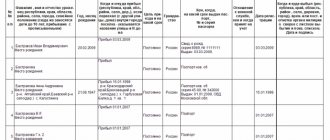According to statistics, the majority of officially married families have children. In the event of a breakdown of a family in which there are minor children, the divorce must occur exclusively in court, regardless of whether there is a dispute between the spouses about them or not.
In the process related to divorce, the court needs to clarify all possible controversial issues about the children:
- determining the place of residence of the minor (i.e. with whom the child remains to live - with the father or mother);
- assignment of alimony from a parent living separately;
- determining the order of communication between children and a parent living separately.
When deciding on the issue of determining the procedure for communication with a child by a parent living separately, or on determining the issue of which parent the child will live with, the guardianship and trusteeship authorities . Employees of the guardianship authority are required to examine the home living conditions of the father and mother, conduct a conversation with them and give the court their opinion on the existing dispute (Article 66 of the RF IC).
How to get a divorce if you have a child
According to Art. 21 of the RF IC, if there are common minor children, regardless of whether the parents have a dispute about them, the divorce must take place through a judicial procedure.
- Drawing up a statement of claim by one of the spouses.
- Determining the jurisdiction of a claim for divorce in the presence of children (the correct choice of the court authorized to consider the claim for divorce):
- if there is a dispute about the residence of the child or the order of communication of one of the parents with him - the district (city, regional) court ;
- if there is no dispute about children (or it is settled by a settlement agreement) - the claim for divorce is considered by the magistrate's court according to the rule of alternative jurisdiction (Article 29 of the Code of Civil Procedure of the Russian Federation) - i.e. at the place of residence of the plaintiff or defendant.
- Collection of documents necessary to secure the claim:
- a copy of the applicant's passport;
- a copy of the marriage certificate;
- a copy of the child(ren)'s birth certificate;
- related documents relating to aspects of the dispute: certificates from the place of work about the employment and wages of the divorcing spouses;
- certificates from the place of study of children;
- agreement on issues related to raising children (if they are drawn up in advance);
- documents for housing, etc.
Payment of the state fee - the state fee for divorce in court will be 650 rubles (clause 2 of Article 333.26 of the Tax Code of the Russian Federation), must be paid by the applicant and submitted with other documents as an appendix to the claim.
Articles on the topic (click to view)
- What to do legally if a mother does not pay child support
- Legal assistance to orphans
- Conditions and documents for obtaining a land plot for a third child in 2020 in Moscow
- Conditions for receiving and amount of maternity capital for a second child after 2020
- Federal Law 159 on additional guarantees for social support for orphans
- Fixed child support under the new 2020 law if the father works
- Form of agreement on payment of alimony for a minor child: sample 2020
If, in addition to a dispute about children, spouses divide jointly acquired property, the state fee is paid separately for each of the disputes, while payment for the division of property will directly depend on its value, like any other claim subject to assessment (clause 1 of Article 333.19 of the Tax Code of the Russian Federation ).
How to file a divorce through the registry office unilaterally if you have children
In exceptional cases, directly specified in paragraph 2 of Art. 19 of the RF IC, divorce in a family with children can occur unilaterally in the registry office if one of the spouses :
- declared incompetent by the court;
- declared missing by a court decision;
- sentenced to imprisonment for a term of more than three years (or is already serving a sentence in prison).
In such a situation, despite the fact that the couple has a common minor child, one of the spouses has the right to visit the registry office and write a statement (on form No. 9) about the desire to divorce, providing the registry office specialists with:
- identification document;
- original marriage certificate;
- a court decision that has entered into force confirming the absence of the second spouse.
The state fee for a unilateral divorce at the civil registry office is 350 rubles. (clause 2 of article 333.26 of the Tax Code of the Russian Federation).
The period determined for the dissolution of “family ties” in the registry office and the court is equal to one month and is given to couples for possible reconciliation of the parties, however, if there are irreconcilable issues regarding children, as well as in the absence of consent of one of the spouses with divorce, the period can be increased to three or more months.
List of documents
The process of divorcing a child involves preparing and submitting additional documents to the court, in addition to the divorce application.
So, if there is mutual consent of the spouses for divorce, a written agreement . This agreement must contain provisions on the division of common property, on the amount and procedure for paying alimony, and on the child’s place of residence after a divorce.
If the application for divorce is filed unilaterally by one of the spouses, the list of documents includes:
- A completed divorce application form containing the name of the court district and full name. judges, full name the plaintiff and the defendant, the residential addresses of the parties, the requirement to consider the application for divorce, a description of the reasons and circumstances that gave rise to the intention to dissolve the marriage, evidence of its innocence and documents confirming it;
- Original marriage certificate;
- Original birth certificate of the child(ren);
- Extract from the house register - this document confirms the fact that the child lives with the plaintiff and the latter fulfills his parental responsibilities towards the child, which is important for determining the child’s place of residence in the future;
- Receipt for payment of state duty (strictly original).
The list of documents is submitted by the plaintiff to the court in two copies. A copy of the divorce petition with copies of all documents attached to it is sent to the defendant for review.
Child's opinion when parents divorce
Family law provides the child with the strict right to express his own opinion when resolving issues affecting his rights and interests.
- Answer a few simple questions and get a selection of site materials for your case ↙
the age of 10 at the time of his parents’ divorce has the right to express his opinion to the court about the main aspects of his further residence and upbringing, if this does not contradict his interests (Article 57 of the RF IC).
The judge is obliged to hear the minor’s arguments and take them into account, unless they directly contradict his health and upbringing.
The influence of the child's age on marital dissolution
Another aspect that courts pay attention to when divorcing parents is the age of the children in the family. Depending on the age of the child, in the absence of an agreement between the parents, the court will resolve the following issues:
- If a marriage is dissolved on the initiative of a spouse with a pregnant wife, or raising a child under 1 year of age , without the woman’s consent, the spouse’s claim is not subject to consideration due to the limitation of Art. 17 RF IC.
- If the spouses have a child (children) under three years of age and the mother is on leave to care for them, the court will definitely consider the issue of alimony maintenance by the father not only of the child, but also of his wife, who is on maternity leave.
- If a common child has reached the age of majority , the spouses have every right to dissolve the marriage in the registry office, unless they have a dispute about the division of property.
Where to go?
In most cases, the divorce of spouses who have children is dealt with by the court. However, in some cases, you can submit an application to the registry office.
An alternative option for spouses who have peacefully agreed on all the nuances regarding children and property is to go to the magistrate’s court.
How are children divided in a divorce?
An emotionally difficult issue in divorce is the division of children between parents. As is known, in most cases, children remain with their mother; no more than 5% of court decisions are made to award the child permanent residence to the fathers.
The court considering the issue of determining the place of residence of a minor may be:
- district - if the parents were unable to resolve the issue peacefully and did not reach an agreement on who the child would stay with;
- settlement - if the dispute is settled by the parents in an agreement in accordance with Art. 24 IC RF.
If the place of residence is determined simultaneously with the divorce in a district court , the guardianship and trusteeship authorities will be involved in mandatory participation as a third party, which will give an independent document-conclusion regarding the substance of this dispute.
In addition to the opinion of the guardianship and trusteeship authority, the court will also take into account the desire of a child who has reached the age of 10 to remain with one of the parents, if it does not contradict his interests.
When determining a child’s place of residence, the court must take into account the following aspects:
- Age of the child (courts mostly leave young children with their mother).
- Gender of the child (teenage girls, due to the characteristics of pubertal development, are more likely to live with their mother, and boys, on the contrary, with their father).
- Place of residence (if the mother, after the divorce, lives in a block next to the school where the child is studying, the clinic where he is registered, and the father lives in another district or in another city, most likely the court will leave the child with the mother so that the parents’ divorce does not coincided with his move, change of school, etc.).
- Living conditions - the guardianship and trusteeship authority, in the process of preparing the case for trial, receives from the court an order to conduct an examination of the living conditions of both parents , and submits to the court inspection reports reflecting this. In this case, the court’s attention is paid to whether the child has a separate room, an individual sleeping and working place, cleanliness and order in the house, etc.
- The state of health of both the child himself and each of the parents.
- Parents' salary and other social characteristics:
- absence/presence of a criminal record;
- characteristics from neighbors;
- place of work and education;
- presence of disability, etc.
If there are two or more children, from a moral point of view it is not customary to separate blood brothers and sisters into different families, but if the conditions of the second parent are good and the child himself expresses a desire to live with him separately from other children, the court can separate the children by determining whether they will live with someone else. sometimes with the father, and someone with the mother.
Agreement on children in case of divorce
To prevent the fate of children from being decided by third parties, which are the court and the guardianship and trusteeship authorities, the best way to regulate the residence of children is to draw up an agreement and submit it to the court (Article 24 of the RF IC).
The main condition of the agreement is respect for the rights and legitimate interests of the child and his parents. If the court is presented with a document that clearly infringes on the rights of at least one of the parties, the court has the right not to take it into account and resolve controversial issues independently.
A statement of claim for divorce in the presence of an agreement on children drawn up between the parents is subject to consideration by a magistrate's court .
The agreement may be submitted to the court:
- in advance in writing (with other documents attached to the claim);
- in an oral petition directly at the court hearing for the inclusion of such a document in the case.
Notarization of the agreement is not a mandatory condition only if it does not resolve the issue of alimony maintenance for the common “child”. If the document raises the issue of alimony, its certification by a notary is mandatory in accordance with Art. 100 of the RF IC, which gives the agreement the force of a writ of execution.
An agreement on the upbringing and maintenance of joint minor children will undoubtedly please any judge, who has relieved himself of the burden of resolving pressing issues, will reduce the time of the divorce process and approach the divorce on the terms of a “painless” compromise between the “spouses-parents”.
Divorce proceedings through the court
Both husband and wife can file a claim. The place of consideration of the case is the magistrate's or district court, to which the registration address of the parties belongs. The magistrate's court considers cases if there are no disputes about children, and property claims amount to at least 50 thousand rubles. In other situations, the process will take place in the district court. The application to initiate divorce proceedings must contain the following information:
- passport details of husband and wife;
- information about the date, number and place of issue of the marriage document;
- information about children under 18 years of age, including adopted children;
- reasons for the couple's separation;
- claims on the right to property, if any;
- place of residence and participation in the lives of children.
Child's last name after divorce
By default, after the parents’ divorce, the child retains the last name that was originally assigned to him on the birth certificate: as a rule, this is the father’s last name.
However, family law does not prohibit changing surname (Article 59 of the RF IC), but this will require:
- mutual desire of both parents;
- permission from the guardianship and trusteeship authority;
- consent of a child over 10 years of age.
If one of the parents does not agree with changing the child’s surname, this cannot be done, except in situations where:
- it is impossible to establish the parent’s place of residence (for example, he is in the executive or criminal investigation department);
- the father or mother is incompetent or deprived of parental rights;
- perform their duties improperly (for example, have a child support debt).
When a child reaches 14 years of age, he has the right to independently demand a change of surname (Article 58 of Federal Law No. 143-FZ of November 15, 1997 “On Civil Status Acts”).
How is property divided during a divorce if there are children?
Division of property is the procedure for allocating shares of each spouse in joint property. The joint property of a husband and wife is considered to be property acquired by the spouses during an official marriage (Article 34 of the RF IC), and we are talking not only about real estate and movable property expressed in material terms - income from activities, pensions and other social benefits are also considered joint property. payments, etc.
As a rule, when determining the shares of spouses , for example, in real estate, these shares are recognized as equal, unless a different provision is certified by a marital agreement (for example, in an agreement or prenuptial agreement).
When there are minor children in a family, the court has the right to ignore the principle of equity equality, based on the interests of the child and the parent living with him, taking into account circumstances worthy of attention.
If a family consists of three people (mother, father, child), the apartment is joint property, and the child remains to live with the mother after the divorce, the court will most likely determine a larger share for the mother, taking into account the continued residence of the minor with her. However, when dividing, the court takes into account other circumstances to make a fair decision:
- investments in the housing of each spouse (in purchase, in repairs, in payment of mortgage payments, etc.);
- financial situation of the parties;
- the presence or absence of other housing;
- health status, etc.
Art. 36 of the RF IC regulates the list of property that is not subject to division: according to the norms of this article, personal belongings acquired to meet the needs of minor children (shoes and clothing, toys, children's furniture, sports, musical equipment, etc.) will be left by the court with the spouse, with whom the child remains to live.
Comments to Art. 23 IC RF
1. The commented article defines the grounds for divorce in court with the mutual consent of the spouses. There are two such circumstances: a) the presence of common minor children; b) despite the absence of objections, one of the spouses evades divorce from the registry office.
It would seem that, on the first indicated basis for divorce, it would be more expedient to dissolve it in the registry office, since, firstly, the spouses express mutual voluntary consent to the termination of family legal relations, and secondly, other issues arising from the legal relations of the spouses can be resolved in court ok. However, I would like to emphasize the effectiveness of the norm of paragraph 1 of the commented article, which is aimed at ensuring the following goals: firstly, the protection of the rights and legitimate interests of minors, since this norm prevents the possibility of violation of the rights of a child in connection with the dissolution of the marriage of his parents; secondly, protecting the rights of the spouses themselves.
When examining the second basis for dissolution of marriage by mutual consent of the spouses, it should be noted that in the legal literature, the spouse’s evasion of a divorce in the registry office is understood as cases when he does not formally express objections to the divorce, but in fact, by his behavior, prevents the dissolution of the marriage (refuses to file a joint the other spouse submits an application for divorce to the registry office or, having submitted it, does not want to appear for state registration of divorce, etc.).
See: Pchelintseva L.M. Family law of Russia. M., 1999. P. 151.
With the mutual consent of the spouses, a simplified judicial procedure for the legal procedure for divorce is provided - the motive for divorce is not clarified by the court and no measures are taken to reconcile the spouses.
In paragraph 1 of the commented article, taking into account the voluntary will of the spouses to dissolve the marriage, the spouses are also given the opportunity, in accordance with paragraph 1 of Art. 24 of the IC, submit to the court an agreement on the children: with which parent the children will live (Clause 3, Article 65 of the RF IC), from which parent and in what amount will child support be collected (Chapter 16 of the RF IC) . However, the commented article also establishes that if such an agreement is not reached or it violates the interests of children, the court is obliged to take measures to protect the rights and legitimate interests of minors, i.e. determine which of the parents the minor children will live with after the divorce and from which of the parents and in what amounts alimony for their children should be collected (see commentary to Article 24 of the RF IC). Thus, we can conclude that the provided simplified procedure for divorce does not in any way affect the interests of minor children.
2. Paragraph 2 of the commented article establishes the period from the date of filing an application to the court for divorce until its dissolution. This period is established by introducing a restrictive clause - “not earlier than the expiration of a month.” In fact, it is equal to the deadline for filing an application to the registry office for divorce.
What issues need to be resolved before divorce?
It would be logical to assume that a wife and husband who unanimously decided to divorce and “got” to court would also be able to peacefully resolve issues related to the divorce -
- on the division of housing and other property,
- about choosing a child’s place of residence,
- on the maintenance of a child and/or a disabled spouse (for example, the mother of a child under 3 years old),
- about the methods and procedures for raising a child together,
- about the possibility of the child traveling abroad.
If agreement cannot be reached, you will have to rely on the court. Precisely because the rights of parents and children (especially!) must be respected, divorce of married couples with children occurs precisely in court.
Determining the residence of children after divorce: Family Code
The procedure for establishing the address of residence of children after the dissolution of the marriage of the parents is regulated by Art. 65. Family Code.
The legislation provides the opportunity for spouses to independently come to a peaceful agreement on the place of residence of their child. The agreement is drawn up in writing and signed by both parties; a photocopy of the receipt must be attached to the divorce claim.
However, the agreement will not be taken into account by the court if it contradicts the interests of the minor. If there is no compromise between the parents, the child’s place of residence is determined by the judicial authority.
The judge's verdict is influenced by such circumstances as:
- model of the minor’s relationship with each parent;
- emotional predisposition to mom and dad, other family members;
- material security of each spouse;
- living conditions of the parents and the possibility of providing the child with his own sleeping place and desk;
- characteristics of spouses from the moral, ethical and psychological aspects;
- type of activity of mother and father, work schedule density;
- the child’s ability to adapt to new conditions and establish contact with other people;
- proximity to a kindergarten or school, depending on the age of the child.
It is mandatory to involve the guardianship and trusteeship authorities to assess living conditions; the judge can also hear testimony from teachers or educators, a pediatrician, neighbors, employers and other acquaintances of the spouses who can characterize them as parents.
Can the child stay with his father?
Statistics on child residence disputes show that 52% of claims seeking domicile determination are filed by men. The court satisfied the fathers' demands in 59% of cases.
In cases where the initiator of the debate was a woman, the minor remained with the mother in 77%. From statistical data it is clear that the court is more favorable to plaintiffs than to defendants.
The judge's verdict is also influenced by the evidence collected by the father. A man should carefully prepare documents confirming that the father has better living conditions, education and development of the child than the mother: income certificate, job description, photographs, receipts, checks and other evidence.
The court is likely to rule in favor of the father if the mother:
- is registered in a drug treatment clinic;
- incapacitated;
- leads an immoral, immoral lifestyle;
- resorts to physical and psychological violence;
- has no home;
- cannot provide enough attention to her baby.
Preparation of a statement of claim. Sample.
The statement of claim for divorce must comply with the requirements of Article 131 of the Code of Civil Procedure of the Russian Federation. In addition, it must indicate information regarding common minor children:
- Name of the court;
- FULL NAME. parties, their place of residence;
- Date of marriage;
- Explanation of the reasons for the impossibility of further living with the spouse;
- Information about the presence of children;
- Description of your (or general) position on the issue of living, raising and maintaining children after divorce;
- Providing arguments and evidence to defend your position;
- The wording of the request to the court, starting with the words “I ask”;
- List of documents;
- Date and signature.
How will the rights of the father/mother change after divorce?
According to Art. 61 of the Family Code, ex-husband and wife have similar rights and responsibilities for upbringing and maintenance, regardless of the place of residence of the minor.
A parent living separately retains the opportunity to see and communicate with his child, raise him, and resolve issues related to the education of the minor.
In paragraph 4, art. 66 of the Family Code also regulates the right to receive all necessary information from a clinic, school or kindergarten and other organizations.
It's fast and free!
Dear readers! Our articles talk about typical ways to resolve legal issues, but each case is unique.
If you want to find out how to solve your particular problem, please use the online consultant form on the right or call:
It's fast and free!
Communication between a child and a parent living separately
Any divorce procedure in the presence of children includes consideration of the future fate of young citizens. It must be determined which spouse the baby will live with and how the other parent will be able to see their child. The law of the Russian Federation establishes that both mother and father, regardless of the specifics of the divorce, after the official dissolution of the marriage have the same rights to communicate with the child. The order of visits between the parent and the child is either discussed by the spouses personally or established by the court, taking into account their wishes. It is worth noting that close relatives as grandparents also have full rights to see their grandchildren.
If the party living with the child violates the terms of the agreement and prevents the other parent from communicating with the child, then the latter can file a lawsuit.
Children's rights after divorce
Children, like adults, are citizens of the country and fall under the legal protection of the state from the moment of birth.
The breakdown of the relationship between father and mother does not abolish the rights of their child.
However, due to conflicting relations between spouses, disputes may arise related to the child’s residence, his communication with the separated parent, and the property rights of the minor.
For housing
The legislation provides for the mandatory registration of a minor at the place of registration of his parents within a month from the date of birth.
It is possible to be discharged from the living space only in cases where the minor is registered at a different address or reaches 18 years of age.
The right of a child to live with his parents guarantees the possibility of his registration at the place of registration of one of the parents without the consent of the owner of the property until the minor turns 14 years old.
For communication
An exceptional case may be communication that is contrary to interests and poses a threat to his physical and psychological health.
The form of communication is not limited by law and can be written, oral, face-to-face or correspondence.
If a parent or other relative lives in another city or country, he/she still has the right to communicate. It is not against the law for a child to travel abroad for temporary residence with another parent.










